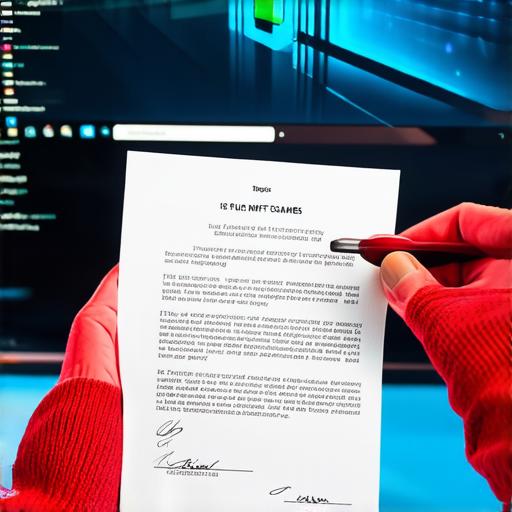NFTs, or non-fungible tokens, have become increasingly popular in recent years as a way to collect and own digital assets. These assets can take many forms, including games and other interactive experiences. As with any new technology, there may be some uncertainty about the legal status of NFT games. In this article, we will explore the legal issues surrounding NFT games and provide an overview of the current state of the law.
What are NFT Games?
Before diving into the legal implications of NFT games, it’s important to understand what they are. NFT games are typically web-based games that use blockchain technology to create unique and valuable in-game assets.
NFT games often involve a form of tokenization, where the game’s assets are converted into NFTs that can be bought, sold, and traded on various marketplaces. This creates a unique ownership model for the in-game assets, as they become scarce and valuable pieces of digital property.
Legal Issues Surrounding NFT Games
As with any new technology, there may be some uncertainty about the legal status of NFT games. Here are some of the key issues to consider:
1. Intellectual Property Rights
One of the main legal concerns surrounding NFT games is intellectual property (IP) rights. The creators of a game may have copyright and trademark protections for the game’s content, including its characters, items, and other assets. If an NFT game involves the creation of new in-game assets, these assets may also be subject to IP protection.
2. Tokenization and Trading
Another legal issue to consider is the tokenization and trading of NFT games. As mentioned earlier, NFT games often involve the conversion of in-game assets into NFTs that can be bought, sold, and traded on various marketplaces. This creates a unique ownership model for the in-game assets, as they become scarce and valuable pieces of digital property.
However, there may be some uncertainty about the legal status of these transactions. For example, if the NFTs are being used to represent real-world goods or services, there may be consumer protection laws that come into play. Additionally, there may be tax implications for both buyers and sellers of NFTs.
3. Regulation

Finally, there is the issue of regulation surrounding NFT games. As with any new technology, there may be a lack of clarity around how NFT games should be regulated. For example, some countries may have specific laws or regulations around tokenization and trading, while others may not.
In some cases, regulatory bodies may take a wait-and-see approach to NFT games, allowing them to develop and evolve without formal regulation. However, as the market for NFT games continues to grow, it’s likely that we will see more formal regulation emerge in the coming years.
Summary
In conclusion, while there may be some uncertainty around the legal status of NFT games, the current state of the law suggests that they are generally legal to play. However, as with any new technology, it’s important for players and creators to be aware of the potential legal issues and take steps to protect themselves and their assets.
